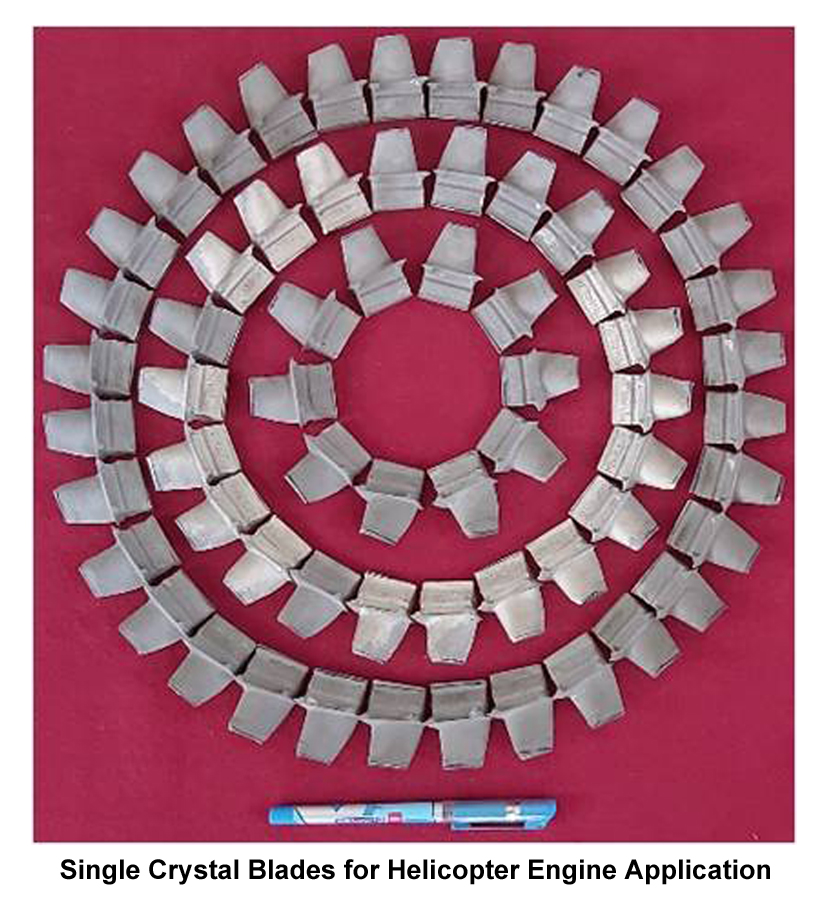
Defence Research and Development Organisation (DRDO) has developed single crystal blades technology and supplied 60 of these blades to Hindustan Aeronautics Limited (HAL) as part of their indigenous helicopter development program for helicopter engine application. Very few countries in the world such as USA, UK, France and Russia have the capability to design and manufacture such Single Crystal (SX) components.
The blades are part of a program taken up by Defence Metallurgical Research Laboratory (DMRL), a premium laboratory of DRDO, to develop five sets (300 in number) of single crystal high pressure turbine (HPT) blades using a nickel-based super alloy. The supply of remaining four sets will be completed in due course.
Why is it so important?
Helicopters used in strategic and defence applications need compact and powerful aero-engines for their reliable operation at extreme conditions. To achieve this, state-of-the-art Single Crystal Blades having complex shape and geometry, manufactured out of Nickel based superalloys capable of withstanding high temperatures of operation are used.
The DMRL undertook this task based on its expertise gained during the development of such a technology for an aero-engine project earlier. Complete vacuum investment casting process to realise the blades, including die design, wax pattering, ceramic moulding, actual casting of components non-destructive evaluation (NDE), heat treatment and dimensional measurement, has been established at DMRL.
A Critical Technological Achievement
The Special ceramic composition has to be formulated for making strong ceramic moulds which can withstand metallostatic pressure of liquid CMSX-4 alloy at 1500°C and above during casting operation. The challenge of maintaining the required temperature gradient has also been overcome by optimising the casting parameters.
A multi-step vacuum solutionising heat treatment schedule for complex CMSX-4 superalloy to achieve the required microstructure and mechanical properties has also been established.
Further, a stringent non-destructive evaluation (NDE) methodology for the blades along with the technique for determining their crystallographic orientations has been developed.
Rajnath Singh and Chairman DRDO Dr G Satheesh Reddy have congratulated DRDO, HAL and the industry involved in the development of critical technology.
